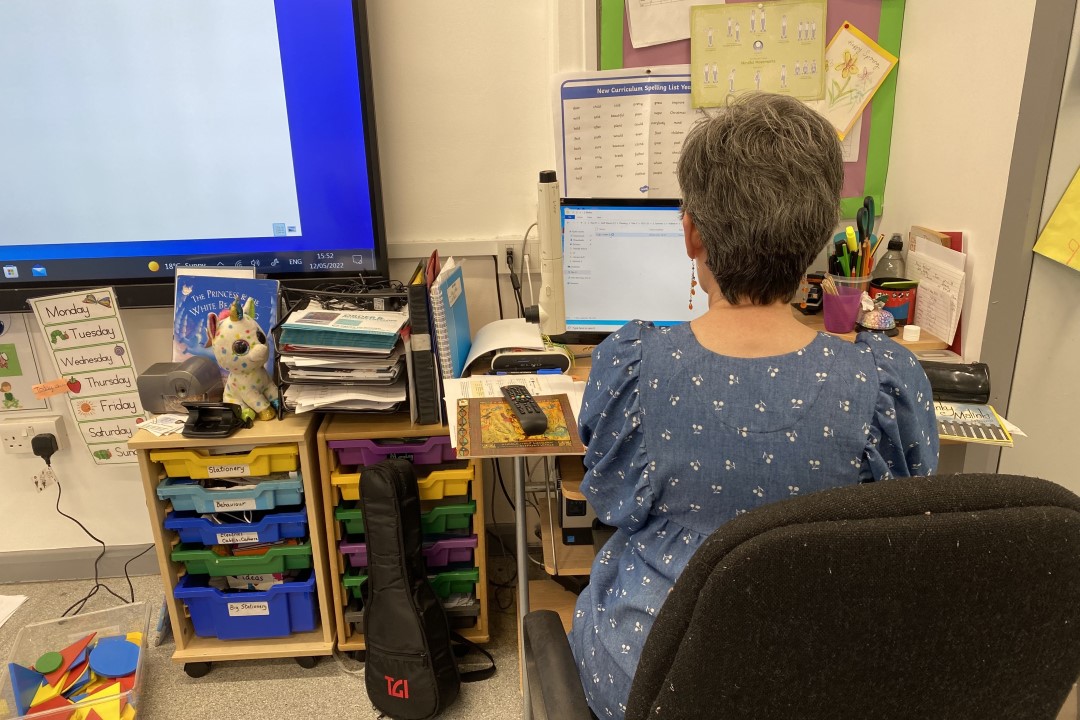Taking on the role of maths lead in a primary school
Ten tips for newcomers to the position
18/05/2022

Are you about to take on the role of maths lead in your primary school? Or perhaps you’re already doing the job but open to new ideas. We realise that the time you have to devote to the role will depend on other commitments, and the size of your school will also be a factor. But we hope there’s something in the ideas below that’ll help you support your colleagues in their maths teaching next year.
1. Create a baseline
Take the time to establish the current situation: what is working well and what could be improved. Don’t jump into changing things based on suppositions. Arm yourself with up-to-date evidence, and dig a little for root causes, before deciding on any action.
2. Make a plan for the year
What improvements would you like to see in place by the end of the school year? Seeing elements of reasoning being embedded in every maths lesson? Better use of questioning? Or do you want to guarantee consistent use of mathematical language in all classes, to avoid pupils getting confused as they move up the school? Whatever your aims are, make a plan for:
- when you’ll explain your aims to colleagues
- how you’ll support teachers to implement changes
- how and when you’ll monitor progress towards the goal
- how you’ll share the evidence of success later in the year.
3. One thing at a time
While your plan for the year might have several headings, concentrate on one development area at a time. Think in phases of action, since sustained improvements take time. It can also help to try an intervention or trial in one or two classes first. Lessons learnt in this way might produce refinements that smooth the way for other classes.
4. Have your lunch with pupils
Every now and then, make a point of mixing informally with pupils. Start with some general 'how’s your morning been?' questions, but then dig a bit about maths. What aspects of lessons do they find helpful or enjoyable? What do they find hard? If you target different years/classes over the course of the term, you’ll build up a bigger picture of strengths and weaknesses across the school.
5. Teacher/TA voice
Before implementing any support measures, get the views of, and intelligence from, colleagues in the area you’re addressing. A simple form for all to fill in will help assemble feedback in a consistent and usable way. Having a better idea of their knowledge, confidence and experience in various aspects of their maths teaching will help you design your intervention. Repeat the exercise towards the end of the year to get their views after something has happened.
6. Timing of book looks
Plan to look at a range of pupils’ books in the second half of the autumn term and then again in the summer term to—hopefully—see evidence of improvements in any areas you’ve been addressing during the year.
7. Visit lessons
This can be hard for a maths lead with a class of their own and a full-ish timetable. But this is where you’ll find out most about how maths is being taught and learnt. If you can make your visits recognised by colleagues as supportive and informal and not seen as ‘observations,’ they may grow to become welcome and fruitful.
8. Have a weekly drop-in hour to talk maths
Make yourself available for an hour a week after school in the same place at the same time, so that people know they can come by and see you to talk about maths. This can become a fruitful intelligence-gathering vehicle for you, since colleagues will come to talk to you when maths—and possibly a maths difficulty—is on their mind. When you can, offer to co-plan maths lessons with a colleague and/or team-teach occasionally.
9. Work with and alongside colleagues
Schools thrive and make better progress when there’s an atmosphere of joint endeavour. So, try to design and create interventions, explorations and experiments collegiately with colleagues. Make it clear that your objective when visiting lessons or talking to pupils is to learn and not to judge.
10. Get support for yourself
If your school does not already have an established avenue for its maths lead to network with colleagues in other schools, use social media or any other informal means of communication to get in touch with other maths leads. Look for colleagues in schools of the same size as yours as they will probably have similar organisational characteristics. Your local Maths Hub may be able to help you buddy up with a few colleagues.
Our thanks to teachers in primary leadership roles in the Maths Hubs Network for contributing to this article
<p>Is your school working with your local Maths Hub?</p>
<p>Every Maths Hub has several free CPD activities for primary teachers and schools. Why not find out what’s available next year?</p>
Find out more